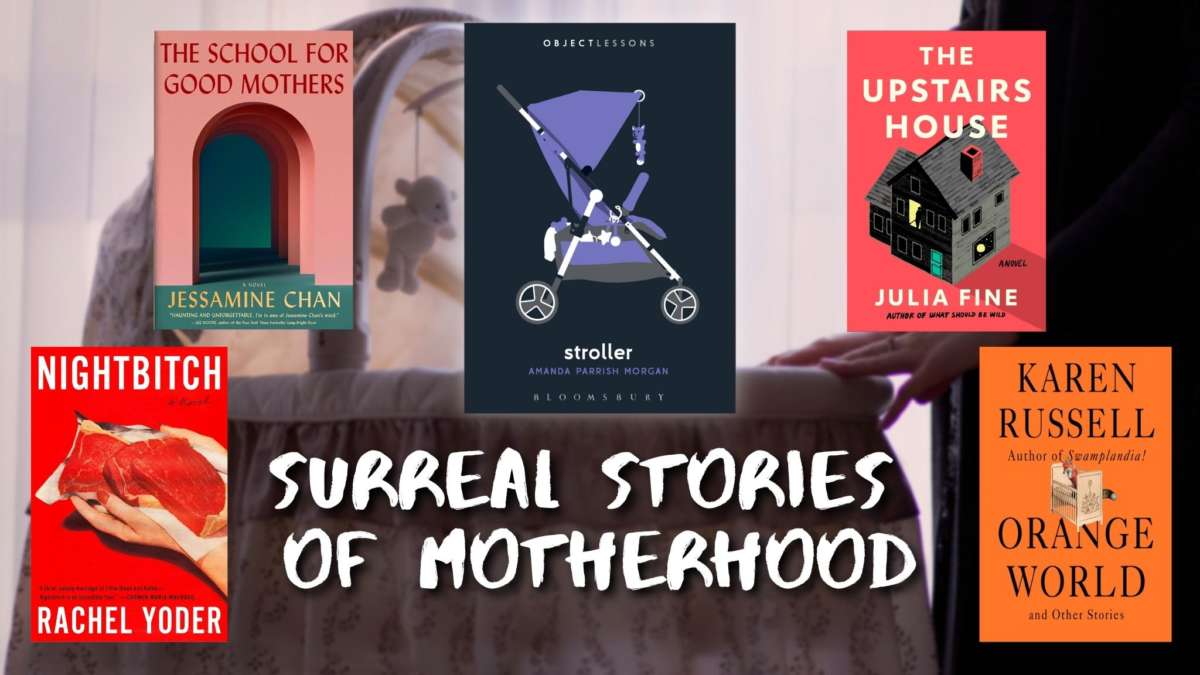When I had my daughter in 2014, it felt impossible to find literature that took motherhood both seriously and tenderly. I could find medical guides or how-to books on sleep training and funny quips about the exhaustion of early motherhood, but all of these books felt very far from the emotional heart of what it meant to be a new mom.
It’s not that I didn’t want to learn about the logistics of getting a baby to sleep through the night (I did! I was so tired!) or find humor in the absurdity of trying to use my hand pump in an airplane bathroom. But I did want at least some of the writing I encountered about motherhood to be about the intensely undefinable and nuanced — pairing the absurd with the sublime, the exhausting with the invigorating, the loneliness with the closeness.
I was familiar with the bad mother archetypes from fairy tales and horror movies and the literature I’d read in high school English class. I was familiar with the beatific good mother tropes as well, both from what I’d read and from what I saw all around me on internet message boards and television ads and social media posts.
What I wanted to read was a book that grappled with how ordinary, human, flawed, smart, adoring, ambitious and selfless mothers make mistakes. I wanted to read about fear and righteous anger and indignation and tenderness from mothers who were as human as I was. Several novels written in the past few years have used surreal, dystopian and magical elementals to evoke the nuance of motherhood that I craved.
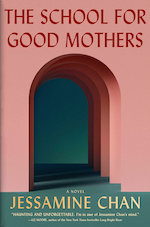 Jessamine Chan’s 2022 novel The School for Good Mothers (Simon and Schuster) (which recently appeared on President Obama’s summer reading list) is about mothers who are sent to training centers to re-learn how to parent with robot babies. The protagonist’s mistake is grave but not evil ⎯ she left her toddler unattended while wandering around the city in what seems to have been an isolated break from reality. She loves her daughter and yet, she has for a brief time failed her, and that failure has cost her custody.
Jessamine Chan’s 2022 novel The School for Good Mothers (Simon and Schuster) (which recently appeared on President Obama’s summer reading list) is about mothers who are sent to training centers to re-learn how to parent with robot babies. The protagonist’s mistake is grave but not evil ⎯ she left her toddler unattended while wandering around the city in what seems to have been an isolated break from reality. She loves her daughter and yet, she has for a brief time failed her, and that failure has cost her custody.
Amazon | Barnes & Noble | IndieBound | Bookshop
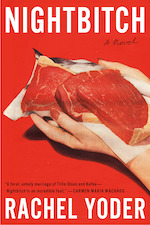 In Rachel Yoder’s 2021 Nightbitch (Doubleday), the mother of a toddler feels an itching at the base of her spine that portends her coming transformation into a raw-meat-eating, tongue-bathing dog. She realizes, too, that the other women — an enthusiastic blonde woman she met at a library story time, for instance — are dogs, too.
In Rachel Yoder’s 2021 Nightbitch (Doubleday), the mother of a toddler feels an itching at the base of her spine that portends her coming transformation into a raw-meat-eating, tongue-bathing dog. She realizes, too, that the other women — an enthusiastic blonde woman she met at a library story time, for instance — are dogs, too.
Amazon | Barnes & Noble | IndieBound | Bookshop
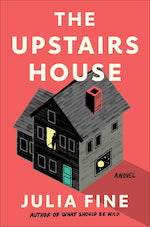 Julia Fine’s The Upstairs House (Harper, 2021) weaves the story of Megan, a woman suffering from postpartum psychosis, with the real story of Goodnight Moon author Margaret Wise Brown’s personal and artistic life. Margaret appears with offers of questionable childcare and companionship for Megan, and it’s unclear if Margaret is a real ghost haunting 21st-century Chicago, or a figment of Megan’s postpartum, delirious, anxious imagination.
Julia Fine’s The Upstairs House (Harper, 2021) weaves the story of Megan, a woman suffering from postpartum psychosis, with the real story of Goodnight Moon author Margaret Wise Brown’s personal and artistic life. Margaret appears with offers of questionable childcare and companionship for Megan, and it’s unclear if Margaret is a real ghost haunting 21st-century Chicago, or a figment of Megan’s postpartum, delirious, anxious imagination.
Amazon | Barnes & Noble | IndieBound | Bookshop
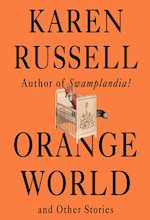 The title story of Karen Russell’s 2019 short story collection, Orange World (Knopf), tells of a pregnant woman’s pact with a demon (that may be either real or of her own anxious creation) in exchange for her baby’s safety. At the story’s end, the protagonist calls her own mother, who confesses that she, too, knows this fear of these demons soliciting bargains. But she seeks to parent in Green World, a place of worry but not terror — a place a shade away from the orange panic that’s always present.
The title story of Karen Russell’s 2019 short story collection, Orange World (Knopf), tells of a pregnant woman’s pact with a demon (that may be either real or of her own anxious creation) in exchange for her baby’s safety. At the story’s end, the protagonist calls her own mother, who confesses that she, too, knows this fear of these demons soliciting bargains. But she seeks to parent in Green World, a place of worry but not terror — a place a shade away from the orange panic that’s always present.
Amazon | Barnes & Noble | IndieBound | Bookshop
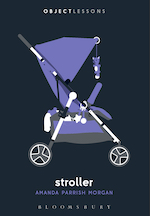 I began writing my own book, Stroller (Bloomsbury), which is nonfiction and very much not surreal, when my children were six and four — the shock of new parenthood felt perhaps a little less visceral as they headed off to school and learned to ride bikes.
I began writing my own book, Stroller (Bloomsbury), which is nonfiction and very much not surreal, when my children were six and four — the shock of new parenthood felt perhaps a little less visceral as they headed off to school and learned to ride bikes.
Although my book is firmly rooted in reality, I have come to understand that the experience of early motherhood itself hadn’t been, and perhaps never is. I was writing about strollers and what our cultural attitudes toward them reveal about how our society treats children and their parents, but I was also writing about strollers as a vessel that keeps kids safe while pushing them gently away. I was writing about strollers as a status symbol that’s paradoxically almost always grimy, and the prop to many a horror scene in film, and an icon of innocence.
As I wove stories of the adventures my kids and I had been on with research and analysis, I saw clearly all the ways in which I had been inhabiting both my boring, ordinary world and some other more surreal one, populated by magic and monsters.

